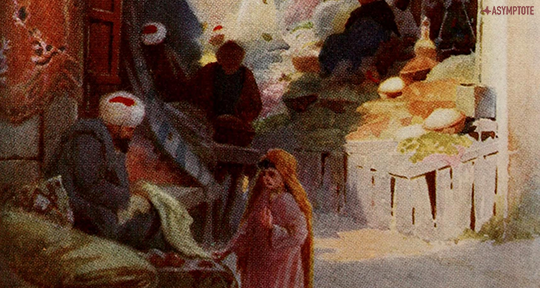On May 12, Egypt joined South Africa in its International Court of Justice case accusing Israel of genocide. As one of the first countries to recognize the Palestinian Declaration of Independence in 1988, Egypt has continually occupied a close position in this ongoing catastrophe; the nation opposed Zionism in the 1930s and accepted tens of thousands of Palestinian refugees in the aftermath of the Nakba but, in more recent decades, the government has worked to covertly “normalize” relations with Israel. This seeming contradiction culminates from the complex, multi-cultural, and syncretic history of the region, in which Jewish and Muslim peoples lived with intertwined fates, and it is that increasingly implausible reality which the French writer and psychologist Tobie Nathan explores in A Land Like You, an absorbing, panoramic narrative of Egypt in the twentieth century. In the following essay, Moumita Ghosh looks at how the nation of Egypt formed out of an overarching Ottoman unity, and how Nathan’s stirring novel of this tumultuous period can inform our understanding of the region today.
We live beside the Arabs the way a man might live beside his innards. Our tales fill their Qur’an, their tongue fills our mouth. Why aren’t they us? Why aren’t we them?
—Tobie Nathan, from A Land Like You (translated by Joyce Zonana)
In Ottoman Brothers, Michele U. Campos writes about how objective distinctions between empires and nations are often murky, especially as demonstrated in the late Ottoman context. In the years before the First World War, the rise of ethno-nationalist sentiments such as Zionism and Arabism were essentially in negotiation with the responsibilities of imperial citizenship in a multi-ethnic and multi-religious Muslim empire. Rather than separating from the Ottoman empire, there were attempts to preserve its existence. As familiar calls for a two-state solution re-emerge in Palestine, now undergoing a second Nakba, this history of collective identity and a shared homeland in the Middle East—though short-lived, incomplete, and within the context of imperialism—has gained a new relevancy.
In the wake of the 1908 Young Turk Revolution and the collapse of the old Hamidian absolutist state, the new epoch of democracy linked the individual Ottoman citizen—irrespective of ethnicity, religion, or mother tongue—to the reforming constitutional state, and citizenship to the “Ottoman-nation” became a distinct socio-political identity. Palestine, even under rule, somewhat differed from the other Ottoman provinces in terms of being a site of worldwide religious devotion, as its daily life involved a mutuality whereby local Muslims, Christians, and Jews came together—especially in Jerusalem—to execute the vision of a “modern” urban city.
Sephardi Jews in particular were grateful to the Ottoman Empire for being their historical saviors, and were consistently mediating between the ideological commitments of multicultural, civic Ottomanism and the European import of particularistic Zionism in the years following the 1908 revolution. Shaped by cultural Hebraism, the Sephardi Jews of Palestine believed in the compatibility of Ottomanism and Zionism; they thought that the socio-cultural and economic rebirth of the Jewish community would be enriching for the Ottoman Empire and, most importantly, that such a revival would be taking place within the Ottoman body-politic. However, such views were not free of contentions—especially due to the continual forces of territorial colonialism. READ MORE…

